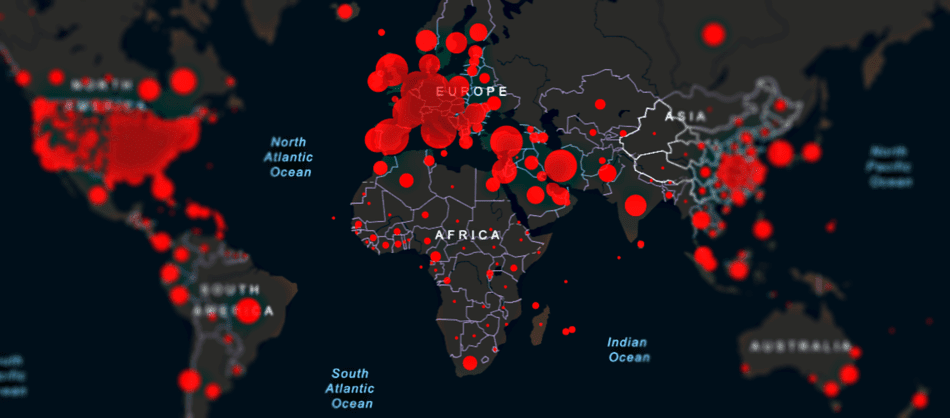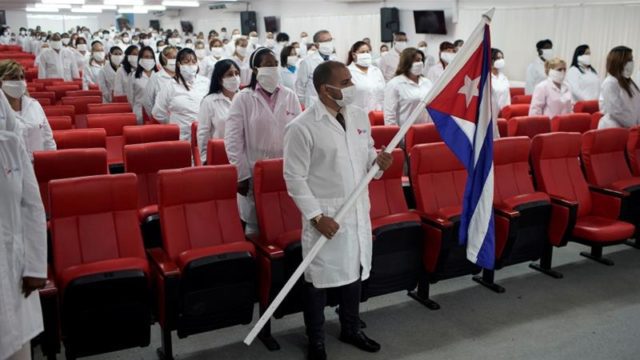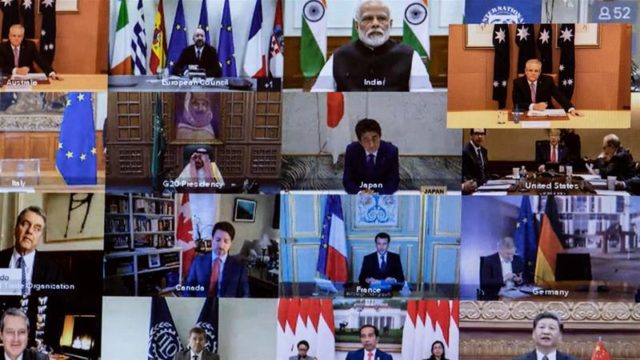Global Issues
The Pandemic, Globalization And China -By Abachi Ungbo
The pandemic put the global health crisis management preparedness and the cohesion amongst nations in fighting against a common threat to test. The exposure of the soft underbelly of globalization will remain one of the pandemics lasting legacies.

The pandemic has shaken the world to its foundation which in no uncertain term will leave an enduring scar on the face of the world. It was carried on the wings of globalization and then metastasized like cancer across the globe. The toll on human lives has continued on an upward trajectory; economies, businesses and livelihoods are still reeling from the devastation wreaked by the outbreak. China is bearing the weight of heavy criticisms for failing to draw the attention of the world earlier as well as its obfuscation of the true picture of the situation at Wuhan.

The pandemic put the global health crisis management preparedness and the cohesion amongst nations in fighting against a common threat to test. The exposure of the soft underbelly of globalization will remain one of the pandemics lasting legacies. And, it has spawned in profusion grave concerns on the future of globalization. The fragility of the global supply chain has effectively been blown opened. Prior to the outbreak, globalization was already subjected to a fusillade of attacks from the rising tide of populism/nationalism, trade wars and idea of protectionism which are all antithetical to the very spirit of globalization.
Globalization has to all intents and purposes collapsed the world into a single community precipitated by the facilitation of global communications due to technological advancement and socioeconomic, political and environmental development. The world has become interconnected in every conceivable way. It carries a cornucopia of merits with also a lot of pushback highlighting what many have described as the evil of globalization. Before the pandemic, the 2019 update of the DHL Global Connectedness Index which is measured by the international flows of trade, capital, information and people shows that the world remains more connected than at almost any other point in history, clearly that has now been effectively rolled back by the outbreak of the pandemic.

With the world in the throes of the pandemic, Arjun Appadurai, a U.S globalization expert argued that “globalization is here to stay and de-globalization efforts are no more than a wishful thinking.” Not a few, have been trying to shine the spotlight on the pitfalls of the global supply chain not least those associated with China. The strident calls for reshoring and multi-sourcing have reached a crescendo. President Emmanuel Macron has been reported to have argued for a strengthening of French and European economic sovereignty” by investing at home in the high tech and medical sectors. Japan rolled out a massive stimulus package in the thick of the pandemic aimed to incentivize their manufacturers to relocate production out of China back home and those inclined to move production to other countries. Also, developing countries from India to Taiwan are jostling to seize the moment which was amply expressed by the Vietnam P.M that his country is getting ready to receive foreign investors who want to either invest in new projects or move their production from other countries to Vietnam.

However, the proponents of reshoring are making compelling case predicated on the premise that a disruptive crisis or different challenges to the global supply chain will certainly emerge further down the road. So much have been offshored to China which is now constraining a rethink.
Edward Tse, author- THE CHINA STRATEGY, talked about value chain migration which China is the biggest beneficiary and has described it as the “relocation of a portion of a business supply, distribution and value creation activity.” Tse added that, aside manufacturing other functions have also shifted to China seeking to take advantage of its indigenous strength in areas like scientific research. Today, myriad of corporation have their Research and Development (R&D) functions in the country. It is a major sourcing centre as a result of the production facilities and networks created by a host of businesses. Prableen Bajpai, explained further in his article- Why China Is The Worlds Factory that, Chinas business ecosystem of networked suppliers, components manufacturers and distributors has evolved to make it a more efficient and cost effective place to manufacture products.
Instructively, the relocation of aspect of businesses follows the principles of efficiency. They are the result of businesses sourcing the best possible inputs to meet their production needs at the lowest cost wherever these inputs come from. So, the quest for efficiency will continue to drive businesses to any corner of the globe. China will continue to remain the hub of global manufacturing and trade for a long time to come on the strength of its efficiency edge which remains strong. It goes without saying that, China is the most populous country with 1.4 billion people, so associating with China means being exposed to one-fifth of the worlds population fraught with prodigious entrepreneurial power, inventiveness and high level of productivity.

A report- “China Is The Worlds Factory, More Than Ever” published in The Economist, asserted that the American businesses will prefer having the spat with China create space for them to operate in the country but not to blow up the opportunities. It quoted, Rhodium Group; a research firm, that the value of foreign mergers and acquisitions in China reached its highest in a decade during the past 18 months despite the trade wars. It goes to show the significance of China to the world and to illustrate the strength of China, The Economist used the production of face mask which in “February China made half of the world supply of 10 million in a day but within a month output increased to nearly 120 million. The report added that any country hoping to make masks on its own needs “companies with expertise in textiles, chemicals, metallurgy and machining along sufficient supplies of raw materials, factory space, trained workers, engineers and capital. This apparently demonstrates the existence of a complete supply chain.
Mihir Sharma, a Bloomberg opinion writer asserted that in attracting companies willing to diversify their supply chains countries dont need to be cheaper or more efficient than China. But they need to be more transparent and dependable. He went further to say, the nations that win this race will be those that can convince corporations theyre the safest place to do business even if not always the easiest. For developing countries like Nigeria, it will take a lot of doing in being prepossessing enough for businesses and investment. Draining the swamp of corruption, dealing with the intractable security challenges, infrastructural deficits etc are major issues that constitutes the bugbear for prospective investors.
ABACHI UNGBO
abachi007@yahoo.com
















